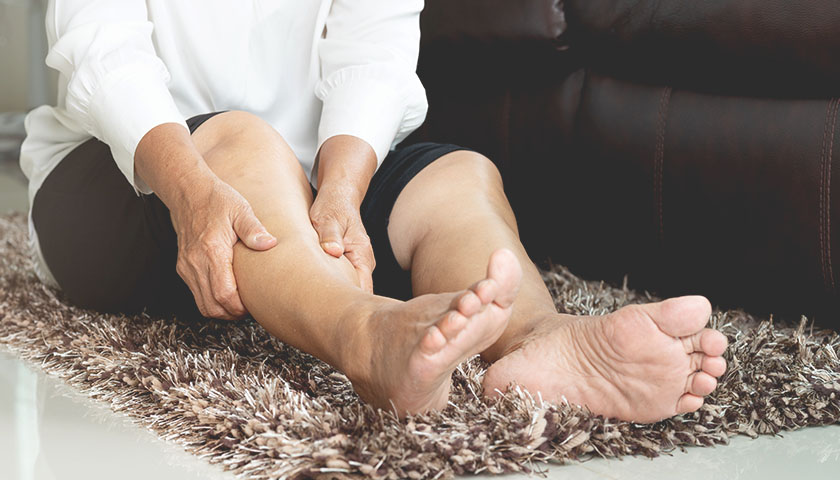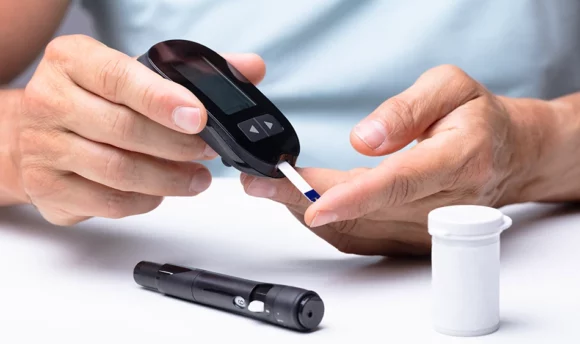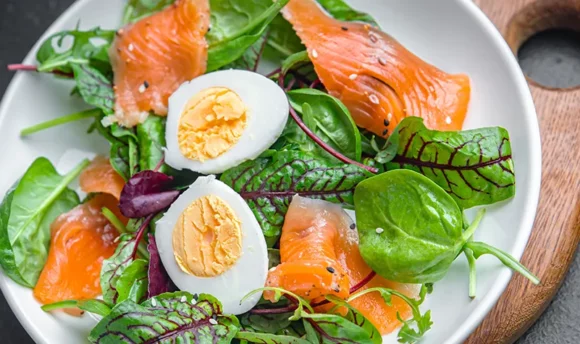Why Am I Getting Leg Cramps on Keto?
If you have ever experienced leg cramps while on a keto diet, you are not alone.

In this article, the Health Reporter medical team will look at what is causing those pesky muscle cramps and what you can try to do to prevent them from happening.
Keto is a low-carb diet that puts the body into a state of ketosis to burn fat. This is a proven way to lose weight and has maintained its popularity over the years with dieters.
But surely there are going to be side effects from changing up your eating habits and cutting out certain foods? Of course, there are. It might explain why you have been experiencing leg cramps.
Keto Leg Cramps – Is It Common?
Surprisingly it is a common side effect of keto and is, in fact, a classic symptom of keto flu. There are a number of contributing factors as to why they may occur, and it isn’t anything serious or cause for alarm.
Have a read below of the most common causes of muscle cramping and how to avoid it from happening on a regular basis.
What Causes Cramps on Keto?
Cramps are involuntary muscle contractions that happen in localized parts of the body, for example, in the legs. More commonly found in the calf muscles, leg cramps can often be painful but only last for a minute or two.
Interestingly, most cramps happen at night, when you are in bed, and your legs are resting. The exact cause of leg cramps is not always clear; however, certain lifestyle factors can have an impact on how often you experience leg cramps. Factors such as pregnancy, insufficient blood flow, and medical treatments are all contributing to your chances of experiencing these painful muscle cramps.
But what is it that causes cramps on a ketogenic diet?
#1 Electrolyte imbalance
Electrolytes are minerals that are essential for certain functions within the body, such as cell communication.
When adapting your body to a keto diet, you may see electrolyte levels fall through urination due to decreased levels of blood sugar. When these levels decrease, your nerve cells become more sensitive, putting pressure on the nerve endings. This, in turn, may cause muscle spasms.
You may notice leg cramping is worse within the first four days of your keto diet due to the electrolyte imbalance if the cramping is down to that.
Try potassium supplements as potassium is an essential mineral and electrolyte that helps keep the water balance in your body and prevent leg cramps.
#2 Too much caffeine
Drinking an excessive amount of caffeine can lead to muscle spasms because it contains stimulants that can cause muscle contractions. As long as you stay within the recommended dose of 400mg per day, you are reducing your chances of experiencing unpleasant cramps.
#3 Dehydration
As your body transitions into a ketogenic diet, it is common for a person to urinate more frequently. This is down to factors such as reduced insulin levels in the body and increased sodium excretion.
This increase in urination then leads to dehydration which could be causing leg cramps.
#4 Medications
Certain medications could be responsible for the leg cramps you may have been experiencing.
Medication for high blood pressure, for example, can sometimes result in a person experiencing leg cramping on a more regular basis. Speak with your doctor if these become persistent, and they might be able to change your dosage if they feel it may be beneficial.
#5 Lack of physical activity
Inactivity can be another contributing factor as to why you may be experiencing unpleasant muscle cramps. If you have an exercise regime, make sure you are sticking to it even when on keto.
Even a small amount of exercise every day will support your weight loss journey as well as reduce the chance of you getting leg cramps.
Lack of physical movement throughout the day can lead to a person getting cramps at night – this is known as nocturnal leg cramps.
How to Avoid Muscle Cramps on Keto
Making sure you are eating nutritious foods and staying hydrated will help avoid muscle cramps. In some cases, it might be beneficial to supplement your diet to make sure you are getting enough potassium, sodium, and magnesium citrate into your meals.
Magnesium deficiency can be the main cause of unpleasant muscle cramps, higher than usual blood pressure, and even poor mental health.
A Word From Nutritionist
Keeping active is an important part of your ketogenic diet when you are trying to lose weight and improve your fitness levels. If you work at a desk, make sure you are taking regular breaks to get up and stretch.
Walk around every couple of hours to loosen any tight muscles. Stretch before you go to bed to avoid nocturnal cramps. Exercise doesn’t always have to be an intense form of exercise, just enough to raise your heart rate. Aim for at least 30 minutes a day to keep active, fit, and healthy.
Conclusion
There are a number of contributing factors as to why you may be experiencing cramps, from dehydration to the type of medication you take. The keto diet is a safe and effective way to lose weight.
Try the tips above on ways to prevent cramps from occurring while remembering trying to stay hydrated and as active as possible to improve your overall well-being.

















































 Select your language:
Select your language: 








